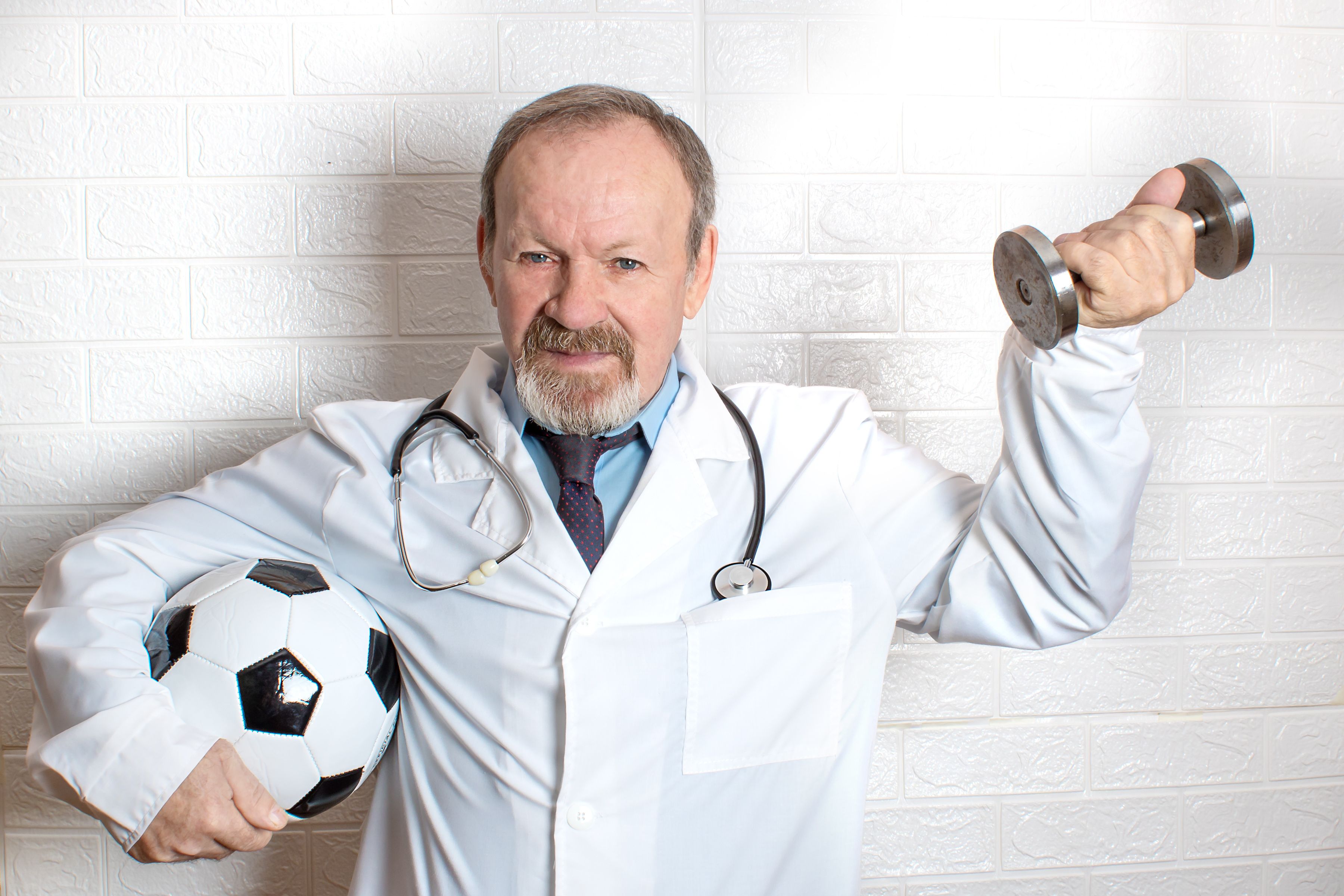- Industry News
- Access and Reimbursement
- Law & Malpractice
- Coding & Documentation
- Practice Management
- Finance
- Technology
- Patient Engagement & Communications
- Billing & Collections
- Staffing & Salary
Afternoon blahs: Time for short bursts of exercise
Just 1-2 minutes of cardio exercise that won't make you break out in a sweat will make you more productive and less lethargic.
© Елена Белоусова - stock.adobe.com

In my previous blog, I discussed the benefits of short afternoon naps. I must be honest; I don't know any physicians who can take a 15–20-minute nap during afternoon clinic hours. However, another solution to the typical afternoon sinking spell is short bursts of exercise. In this blog, I will discuss the concept of short bursts of exercise and how just 1-2 minutes of cardio exercise that won't make you break out in a sweat will make you more productive and less lethargic.
The evidence continues to grow that even short periods of activity can make a difference.
A recent study published in The LANCET Public HealthTrusted Source reported how short bouts of moderate-to-vigorous physical activity increases energy levels and productivity and reduces the risk of heart attack, stroke, and heart failure.1
The researchers found that short physical activity, greater than one-minute, was associated with a decreased risk of major adverse cardiovascular events. The study's major findings using wrist wearables found that doing brief bursts of exercise has health-enhancing benefits and can lower the risk of heart attack and stroke by 29-44%. The study indicates that opportunities for reaping the benefits of physical activity abound, even for physicians who have difficulty finding time to exercise during office hours.
Exercise intensity can be divided into three categories:
- If you can sing while doing the activity, that's light exercise.
- If you can't sing but you can speak comfortably, that's moderate.
- Vigorous exercise occurs when you can only speak a few words after 30 seconds of exercise
I have found that just climbing 2-3 flights of stairs in the afternoon is effective in increasing my energy level and enjoyment from providing patient care. I think that to make this effective you must be panting and deep breathing at the end of the short burst.
Examples of short bursts of exercise
Short bursts of physical activities include the following:
- brisk walking down the hall
- walking upstairs, at least two flights, instead of using the elevator
- dropping down and doing a few push-ups, ~20
- one to two minutes of jumping jacks in your office
It's not the exercise duration that matters in these instances -- it's the intensity. This type of exercise has been effective at bolstering the cardiovascular system.
Even tiny spurts of exercise throughout the day are associated with significant improvement in energy levels and improved productivity.
Even short bursts for just four-second intervals of intense activity could counteract the metabolic toll of sitting often referred to as the new smoking.2
Short bursts of exercise show that the average person\doctor doesn't need to go out of their way to reap the benefits of those small spikes in short periods of exercise.
I read the NYT best seller Breath-The New Science of a Lost Art by James Nestor.3 Although the author is not a physician, he has spent years researching the topic and the physiology of breathing. It is my simplistic explanation that sitting still allows CO2 to accumulate in the pulmonary system and that pO2 is modestly decreased. With short bursts of exercise, it seems to be logical that the oxygen levels will increase, and the CO2 will be purged from the lungs. This makes clear sense to me that there is a physiologic basis for short bursts of exercise.
Let's assume you can’t spare even a few minutes to walk up the stairs during clinic. Another option is to simply to take a few deep breaths. This increases the pO2 levels and purges the lungs of CO2.
There are no negative effects. This offers a high benefit/cost ratio with minimal cost/time commitment. This makes just a few deep breaths the ideal solution for the busy doctor experiencing afternoon lethargy. Deep breathing can be performed anywhere and may improve energy levels and productivity.
Bottom Line: It's not the duration of the exercise that matters -- it's the intensity. Additional studies are needed to determine the exact mechanistic pathways from everyday activities in short bursts leading to improved energy level when the afternoon lethargy impairs your efficiency and productivity.
Dr. Neil Baum is a physician in New Orleans and the author of The Business of Building and Managing a Healthcare Practice, Springer 2023
References
- www.thelancet.com/public-health, October 2023
- Wolf AS, Medicine & Science in Sports & Exercise 52(10):p 2262-2269, October 2020.
- Nestor, J., & Nestor, J. (2020). Breath. Penguin Random House Audio Publishing Group
Asset Protection and Financial Planning
December 6th 2021Asset protection attorney and regular Physicians Practice contributor Ike Devji and Anthony Williams, an investment advisor representative and the founder and president of Mosaic Financial Associates, discuss the impact of COVID-19 on high-earner assets and financial planning, impending tax changes, common asset protection and wealth preservation mistakes high earners make, and more.
Reducing burnout with medical scribes
November 29th 2021Physicians Practice® spoke with Fernando Mendoza, MD, FAAP, FACEP, the founder and CEO of Scrivas, LLC, about the rising rates of reported burnout among physicians and how medical scribes might be able to alleviate some pressures from physicians.
